Who Was Amy Beach?
November 11, 2022
American composer Amy Beach lived an astounding life despite the social and familial restraints that strictly bound her time and efforts. Take a moment to survey just a few points in her life when she offered the world a glipse of her radical prowess as a musician and artist who would impact both women's history and the catalogue of American music.
Birth in New Hampshire
Amy Marcy Cheney was born in Henniker, New Hampshire as an only child. At the age of two, her incredible intellect, unusual memory, and perfect pitch were noted, and she was recognized as a genius. She was already able to sing roughly 40 pieces of music, always in their original keys and could improvise alto lines with a given melody sang by her mother. By the age of four, young Amy was already composing short, but complete, works such as Mama's Waltz (1872).

Beach's Early Music Education
Since her mother was an avid pianist, Beach was given formal piano lessons three times a week with her mother from age 6 to 8. The young composer soon gave public recitals at age 7, featuring works by Handel, Beethoven, and Chopin. One such recital was reviewed in arts journal The Folio. Multiple agents asked for Amy to participate in concert tours, but her parents declined. Later in memoires, Beach commented that she appreciated this decision and the sheltering guidance of her family at that time.
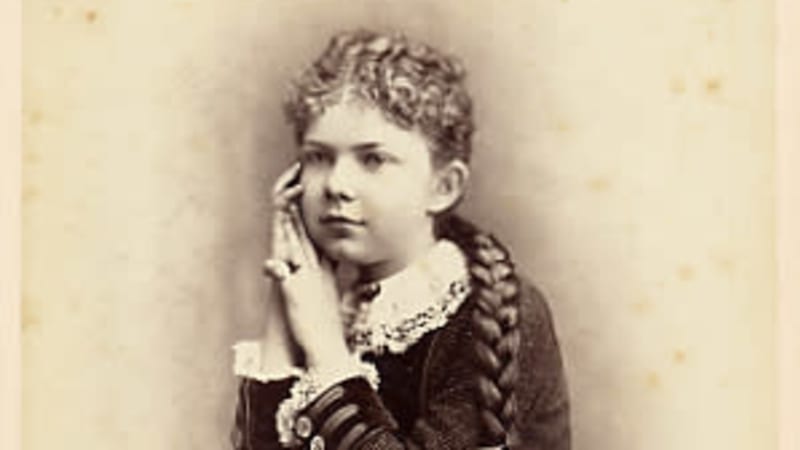
The Decision Between Eurpean Conservatory and Private School Studies in Boston
By 1875, Amy's family moved to Boston where several esteemed musical experts and educators advised her parents that Amy should study in a European conservatory. Her parents opted for more discretion and privacy in their lives and decided for her to remain in Boston. At this point, she was enrolled in a private school directed by W. L. Whittemore where she received her primary and secondary education including language courses in French and German.
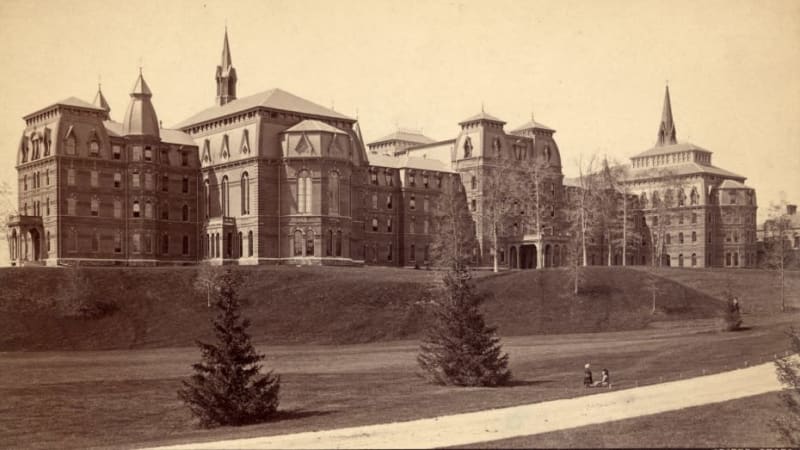
1876 to 1882: A Teenage Mind Enamoured with Music
Amy studied piano with Johann Ernst Perabo and then Carl Baermann, a pupil of Franz Liszt, during this period. From 1881, at the age of 14, she also studied harmony and counterpoint with Junius W. Hill at Wellesley College; this was her only formal instruction in composition during her lifetime. At this point, she began to collect every possible resource on the subject. She amassed a collection of books on composition and orchestration, independently studied counterpoint, harmony, and the art of the fugue, even translating French treatises on orchestration into English for herself. She was fascinated, driven, and brilliant as a researcher and creative mind.
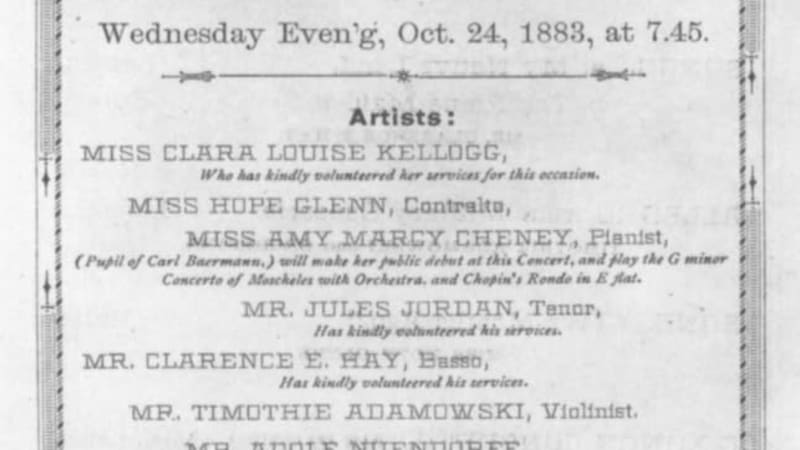
Beach's Debut at Boston's Music Hall
"It is hard to imagine a more positive critical reaction to a debut... her audience was enthusiastic in the extreme..."
The young composer made her performance debut at the piano at age sixteen in 1883, in a "Promenade Concert" conducted by Adolph Neuendorff at Boston's Music Hall. She played Chopin's Rondo in E-flat and was piano soloist in Moscheles's Piano Concerto No. 3 in G minor. Biographer Fried Block described her reception: "[it] is hard to imagine a more positive critical reaction to a debut, her audience was enthusiastic in the extreme." Over the course of the next two years, she performed in Chickering Hall and even starred in the final performance of the Boston Symphony's 1884–85 season.
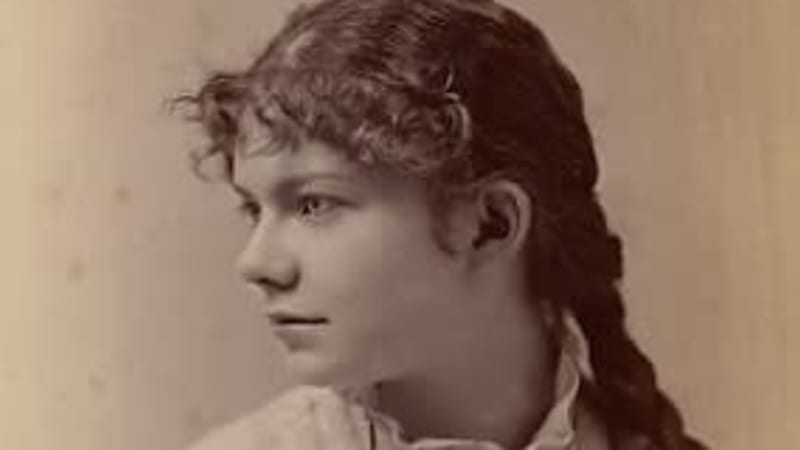
In late March 1885, at just 18 years old, she performed the Chopin F-minor Piano Concerto with the Boston Symphony Orchestra under the direction of Wilhelm Gericke, then just a month later, she performed the Mendelssohn D minor Piano Concerto with the conductor Theodore Thomas and his orchestra of seventy musicians.
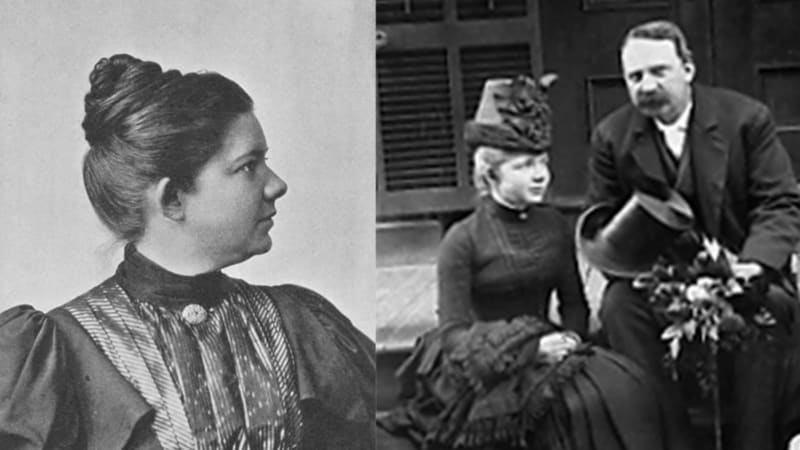
Marriage and An Abrupt Halt to a Brilliant Performance Career
In 1885, Amy married Dr. Henry Harris Aubrey Beach, a Boston surgeon 24 years her senior. Her piano performance career was nearly immediately restricted in accordance with his wishes. Her free time, that which was not consumed with socially acceptable wifely duties, was thus spent solely on composition, and her name was subsequentially listed concert programs and published compositions as "Mrs. H. H. A. Beach".
Her marriage terms and conditions included: "to live according to (Dr. Beach's) status, that is, function as a society matron and patron of the arts," to never teach piano, to limit performances to two public recitals per year, with profits donated to charity, and to devote herself more to composition than to performance" although she had regarded herself as a pianist first and foremost in her career. She was also required not to study with a tutor, educator, or colleague of the arts so her self-guided study from her youth continued.

Nevertheless, She Persisted
Amidst these new confinements and restrictions, her genius still flourished. In February of 1892, her Mass in E-flat, Op. 5 premiered at the Boston Music Hall, performed by the Handel and Haydn Society. It was an instant and glorious success. Critics raved, declaring Beach to be one of America's foremost composers and compared the work to those by Cherubini and Bach.
Amy still made great successes in her career even in her limited allowances for time and performances. In 1893, she was commissioned to write Festival Jubilate, Op. 17 for the World's Colombian Exposition in Chicago. She managed the task in six weeks for the premiere by Theodore Thomas and his orchestra at the Exposition. Subsequently, the Beaches purchased property on Cape Cod entirely from the royalties just of Amy’s song "Ecstasy."
Following this success and several other premieres came one of the most important milestones in American music history and Amy's career: her Gaelic Symphony. This was the first symphony composed and published by an American woman. It premiered October 30, 1896, performed by the Boston Symphony "with exceptional success," as well as almost unanimous applause and acceptance from her peers in composition, especially in New England.
Later, in 1900, the Boston Symphony premiered Beach's Piano Concerto, with the composer as soloist. This seems to mark a time in her life when Beach struggles against her mother and husband for control of her musical life and autonomy.
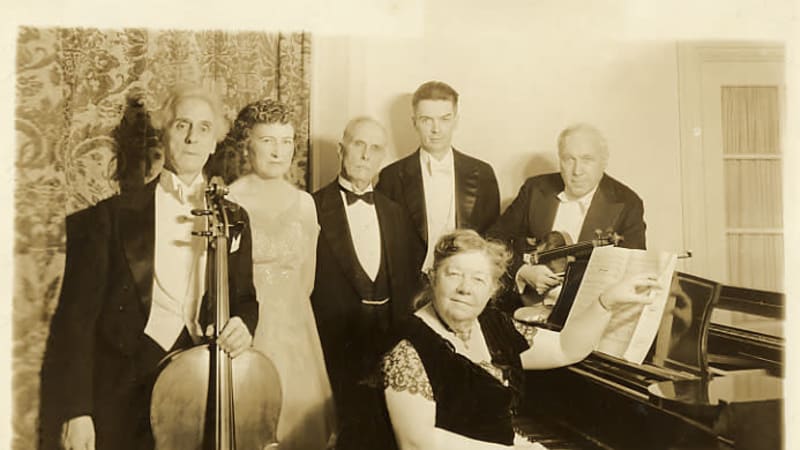
A Composer, Finally Recognized and Freely Active
In June of 1910, Beach's husband died and left Amy widowed and without children. Just seven months later, her mother passed away. Beach felt unable to work and instead went to Europe in hopes of recovering there. In Europe, she changed her name simply to "Amy Beach".
During her time in Europe, she travelled with American soprano and prima donna of the Berlin Royal Opera, Marcella (Marcia) Craft. Her first year in Europe was focused on resting and, likely, adjusting to her new circumstances as a widow. By 1912, she resumed infrequent performances; her European debut, given in Dresden in October 1912, she played her own violin and piano sonata with violinist "Dr. Bülau." Her concerts were generally well-received with few exceptions.
In 1913, a critic from Hamburg, Germany wrote: "we have before us undeniably a possessor of musical gifts of the highest kind; a musical nature touched with genius."
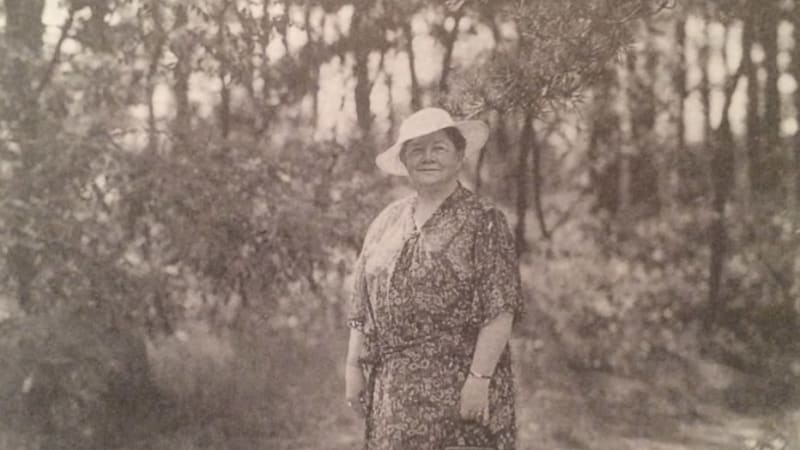
Later Life and Career
By June 1914, with the outbreak of World War I, Beach returned to the US to continue composing and touring. She later established a home in New York City in an apartment at the American Women’s Club on 57th Street. She continued to tour in the US and abroad including several periods of artist residency at the MacDowell Colony in Peterborough, NH, beginning in 1921. The late years of her life were a period of incredible productivity and artistry, trips to Europe, and time spent leisurely opting between her homes in New York City, Cape Cod, Hillsboro, NH, and the MacDowell Colony.
Finally, after a lifetime of contributions to American music and various genres Beach received an honorary Master’s degree from the University of New Hampshire. Upon awarding her the honor, the university president, Edward Morgan Lewis, expressed to Beach his regrets that the university had not awarded her an honorary doctorate degree instead.
Her final years were spent receiving honors, performing, composing, and travelling. In January of 1944, at the age of 77, Amy Beach died quietly in her New York apartment.